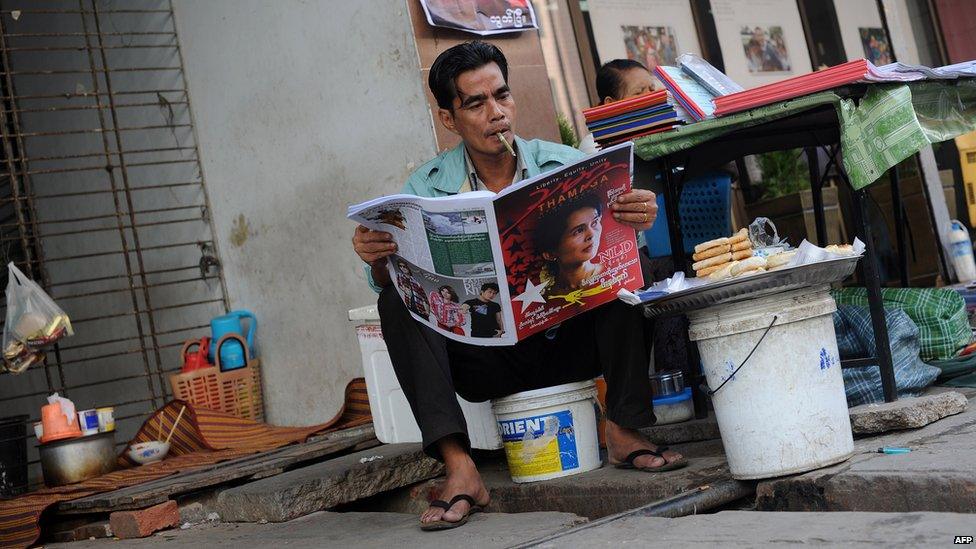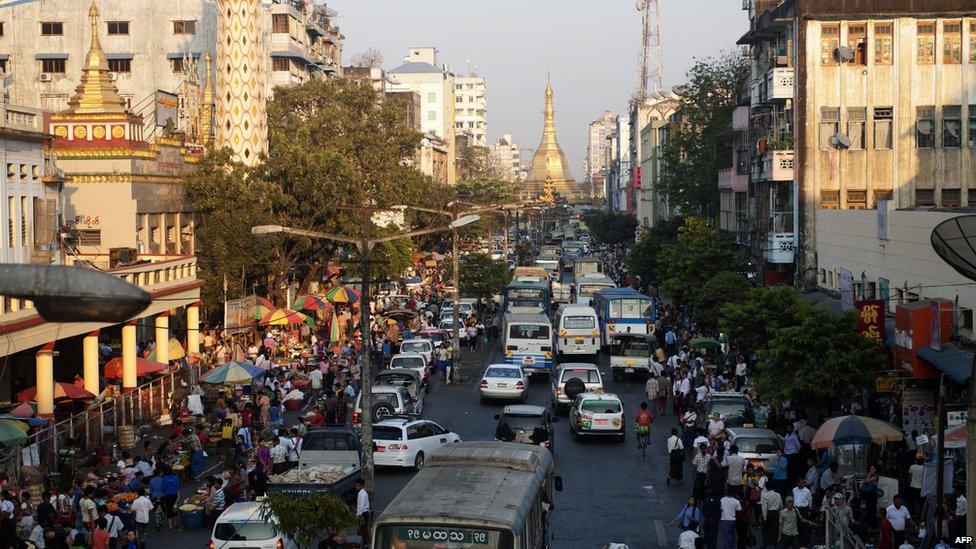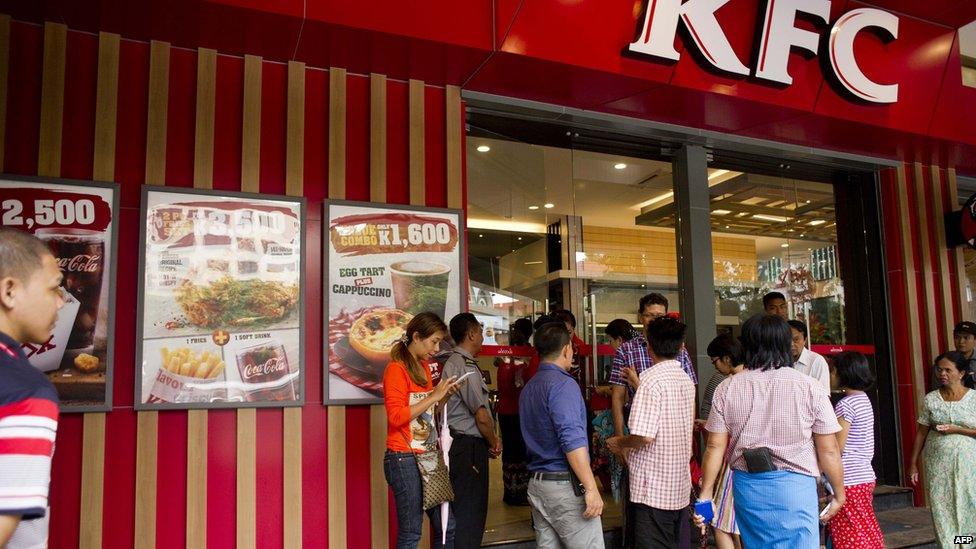Myanmar election causes uncertainty for businesses
- Published
- comments

The election is giving the Burmese much to think about
In just a few days' time, Myanmar - also known as Burma - heads to the polls in what are being called the most historic elections in a generation.
After almost half a century of isolation, the country's economy has slowly been opening up over the past few years - the government has relaxed rules on trade and investment, and in some sectors made it easier to do business.
But the political uncertainty has still got many businesses waiting on the sidelines ahead of the elections.
Walk down the streets of Yangon, Myanmar's commercial capital, and it is easy to see how the country is in the midst of a massive economic transition.
Locals tell me that just a few years ago, when Myanmar was still closed off from the rest of the world, there were barely any cars on the streets.
But now imported vehicles jam up the roads, and Western-style restaurants and shops line the crowded boulevards.
Another statistic that's often thrown around is how cheap mobile phone SIM cards now are - just a few years ago one could set you back around $2,000 (£1,300). Now you only have to shell out $1.50 - and it looks like everyone has a mobile phone here.

Myanmar's economy has been opening up in recent years to foreign investment and tourists
And businesses are benefiting from this new-found consumerism.
'Big difference'
"I feel the difference when I walk down the streets," Sandeep Kohli, the chief executive of Unilever in Myanmar, told me as he showed me around one of the small stores that sells the company's products.
"I see a big difference in the kinds of products we sell - we have more premium sachets that are being sold, and people are yearning for better quality things."
But while there's a lot of opportunity - Myanmar is set to be the fastest-growing nation in the region this year - investing in this country is not for the faint hearted.
Unilever knows this all too well. Back in the late 90s, it was one of the companies that entered the country during a brief opening in Myanmar's history - but when the nation was shut down again by the military government, Unilever was kicked out.
That uncertainty still clouds the minds of many who may want to invest in Myanmar.
According to the World Bank, it is the most difficult country in the world to start a business in.
And although hundreds of foreign companies have set up in Myanmar since it first started opening up, some sanctions remain - and finding a local partner can be tough, given that there are a number of individuals who are still on a US blacklist.
'Not easy'
Eric Rose, an American lawyer experienced the challenges of doing business here first-hand. He almost pulled out of Myanmar this year because of the difficulties in the country. Much of the economy is still controlled by the army, and powerful and well connected business tycoons.
"Coming to Myanmar today is not an easy proposition," he told me. "You can be quite challenged in being able to penetrate into areas by the military or by the cronies."

KFC is the first American fast food chain to open an outlet in Myanmar
But the opportunities here are still drawing foreign investors to this country.
And nowhere is that more evident than at the Kentucky Fried Chicken in Yangon.
It only opened two weeks ago, but already the store is packed - filled with Myanmar's aspirational middle classes.
There's no doubt that this is a market full of potential, but only if you have an appetite for risk.